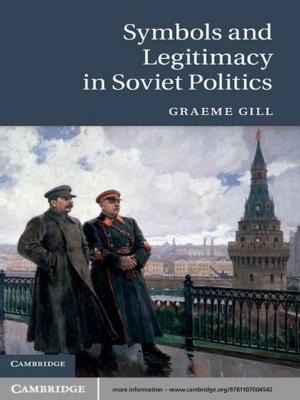Graeme Gill: 5 books
by Graeme Gill
Language: English
Release Date: March 24, 2011
Language: English
Release Date: March 24, 2011
Symbols and Legitimacy in Soviet Politics analyses the way in which Soviet symbolism and ritual changed from the regime's birth in 1917 to its fall in 1991. Graeme Gill focuses on the symbolism in party policy and leaders' speeches, artwork and political posters, and urban redevelopment, and on ritual...
Building an Authoritarian Polity
Russia in Post-Soviet Times
Language: English
Release Date: November 12, 2015
Graeme Gill shows why post-Soviet Russia has failed to achieve the democratic outcome widely expected at the time of the fall of the Soviet Union, instead emerging as an authoritarian polity. He argues that the decisions of dominant elites have been central to the construction of an authoritarian...
by Graeme Gill
Language: English
Release Date: January 17, 2013
Language: English
Release Date: January 17, 2013
During the Soviet period, political symbolism developed into a coherent narrative that underpinned Soviet political development. Following the collapse of the Soviet regime and its widespread rejection by the Russian people, a new form of narrative was needed, one which both explained the state of...
Democracy and Post-Communism
Political Change in the Post-Communist World
Language: English
Release Date: August 27, 2003
The collapse of communism was widely heralded as the dawn of democracy across the former Soviet region. However, the political outcome has been much less uniform. The post-communist states have developed political systems from democracy to dictatorship.
Using examples and empirical data collected...
by Graeme Gill
Language: English
Release Date: March 21, 2018
Language: English
Release Date: March 21, 2018
This book studies the way in which the top leadership in the Soviet Union changed over time from 1917 until the collapse of the country in 1991. Its principal focus is the tension between individual leadership and collective rule, and it charts how this played out over the life of the regime. The...




